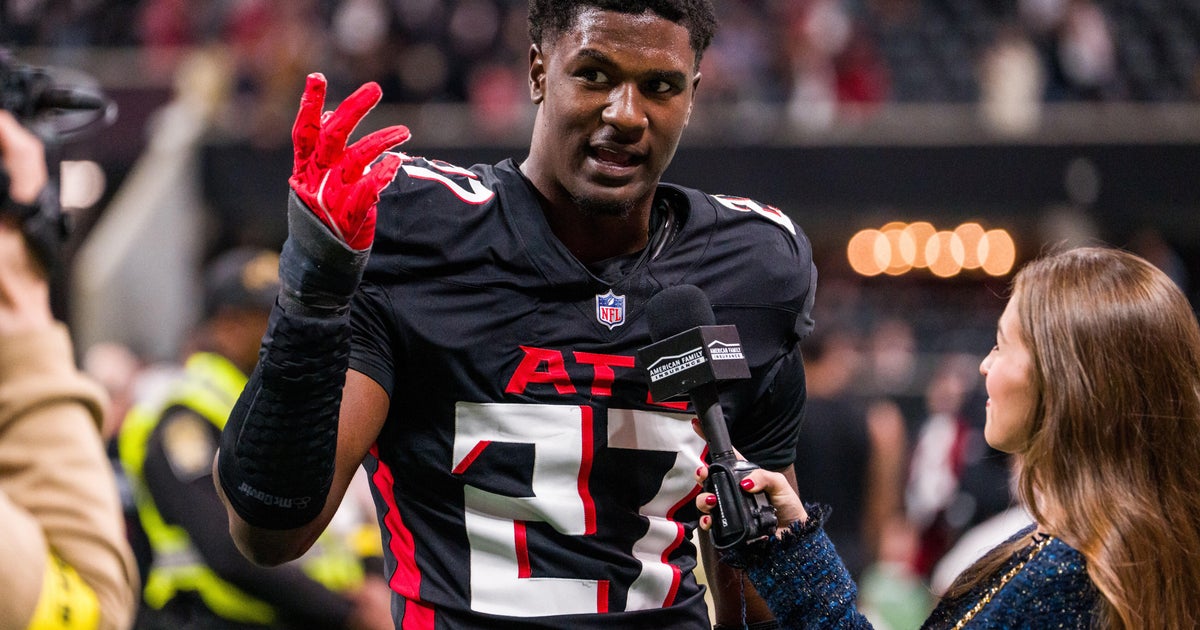Proposed Kickoff Rules A Touchy Subject
It appears as if there's actually football to talk about when it comes to the NFL. New proposed kickoff rules would make them safer, but reduce some of the big-play potential.
Committee chairman Rich McKay said Monday at the owners meetings that moving kickoffs up to the 35-yard line and bringing touchbacks out to the 25 have spurred "healthy discussions" among coaches and general managers. So much so that some alterations could be coming to proposed changes, which also include eliminating the blocking wedge and limiting coverage players from long run-ups.
Owners will vote on those proposals Tuesday, along with amendments to defenseless player rules for receivers, and allowing the replay official to review all scoring plays at any time in games.
"This is a rule 100 percent based on player safety," said McKay, president of the Atlanta Falcons, referring to the kickoff proposals. "We've seen higher rates of injuries than we are comfortable with and we're trying to remedy it."
Several coaches expressed concerns to the committee about so many changes to such a "game-changing" play. They worried that bringing touchbacks out to the 25 instead of the 20 would affect field position too much. They also fear an increase in touchbacks.
McKay said there will be more meetings before Tuesday's vote.
"I don't blame anybody for saying this is a big change - it is," McKay he said. "Nor do I blame anyone for pushing back. That's good. They made a lot of good suggestions."
During the committee's meetings last month with players in Indianapolis, kickoffs drew much attention. McKay said players voiced their concerns, adding that video showed a rising rate of injury.
The league reduced the number of players allowed in a blocking wedge to two in 2009. Now, it wants the wedge gone altogether.
Restricting how far coverage players can run up before the kickoff to 5 yards also is a safety measure.
As for replay, McKay said coaches complained of too much pressure when it came to challenging scoring plays, especially when they're playing on the road and the play often quickly disappears from the videoboard.
"If there's a doubt, we think the referee should review it," McKay said.
College rules allow replay officials to review every play. The NFL won't nearly go that far, but McKay reasons that with 20 percent of coaches' challenges coming on scoring plays, the burden to confirm scores should be on the replay official.
Of 53 challenges last year on scoring plays, 21 were upheld, reversing the call.
Passing this rule change would also eliminate the third challenge a coach gets if he is successful on the first two. The third challenge was used only eight times last season.
A proposal to ban players from launching themselves to make a tackle likely will pass. The committee was alarmed by the number of players using the technique, and NFL senior vice president Ray Anderson said the league could unilaterally act to outlaw it.
"We want to do it in a more inclusive, democratic way," said Anderson, the NFL's chief disciplinarian. "If it's a critical point we think we just have to act on in the best interest of the game, we have the authority to do it."
The change would not apply to the area between the tackles at the line of scrimmage.
Another amendment would expand the definition of a defenseless receiver to a player who attempts or makes a completed catch and hasn't had time to protect himself. He would be protected from hits to the neck or head area.
The league also wants to keep all of its fields green, so a team that wants to paint its field would need NFL approval.
"We don't want any red fields like at Eastern Washington," McKay said with a smile.
Copyright 2010 by STATS LLC and The Associated Press. STATS LLC and The Associated Press contributed to this article. Any commercial use or distribution without the express written consent of STATS LLC and The Associated Press is strictly prohibited.







